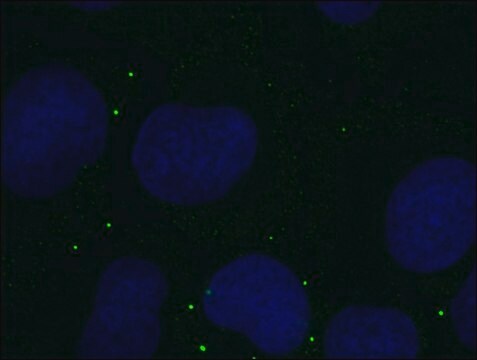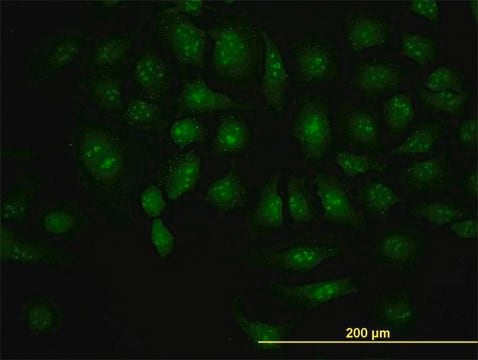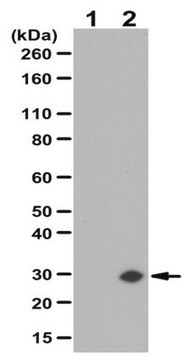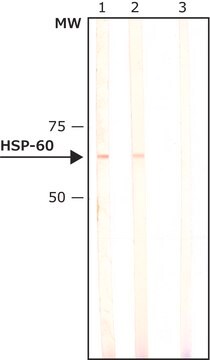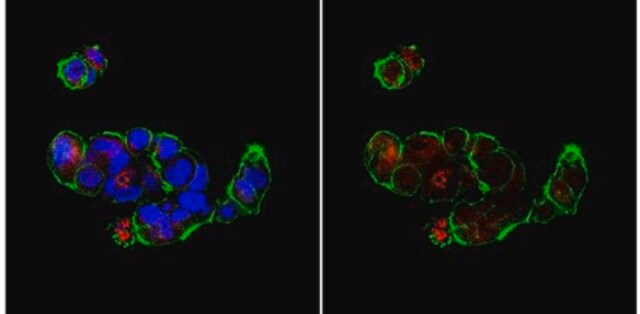SAB4200837
Anti-DDX6 antibody, Mouse monoclonal
clone DDX6-34, purified from hybridoma cell culture
Synonym(s):
ATP-dependent RNA helicase p54, DEAD box protein 6, HLR2, Oncogene RCK, Probable ATP-dependent RNA helicase DDX6
About This Item
Recommended Products
biological source
mouse
antibody form
purified from hybridoma cell culture
antibody product type
primary antibodies
clone
DDX6-34, monoclonal
species reactivity
human, monkey, bovine, dog, rat, mouse
packaging
antibody small pack of 25 μL
concentration
~1 mg/mL
technique(s)
immunoblotting: 1-2 μg/mL using human HeLa whole cell extract.
immunofluorescence: 10-20 μg/mL using human U-2-OS cells.
isotype
IgG1
UniProt accession no.
shipped in
dry ice
storage temp.
−20°C
target post-translational modification
unmodified
Gene Information
Monkey ... DDX6(101053064)
bovine ... DDX6(513906)
dog ... DDX6(479414)
human ... DDX6(1656)
mouse ... DDX6(13209)
rat ... DDX6(500988)
General description
Specificity
Immunogen
Application
Biochem/physiol Actions
Physical form
Storage and Stability
Disclaimer
Not finding the right product?
Try our Product Selector Tool.
Storage Class Code
10 - Combustible liquids
Flash Point(F)
Not applicable
Flash Point(C)
Not applicable
Certificates of Analysis (COA)
Search for Certificates of Analysis (COA) by entering the products Lot/Batch Number. Lot and Batch Numbers can be found on a product’s label following the words ‘Lot’ or ‘Batch’.
Already Own This Product?
Find documentation for the products that you have recently purchased in the Document Library.
Our team of scientists has experience in all areas of research including Life Science, Material Science, Chemical Synthesis, Chromatography, Analytical and many others.
Contact Technical Service